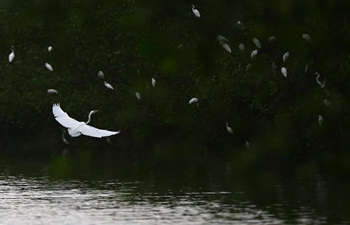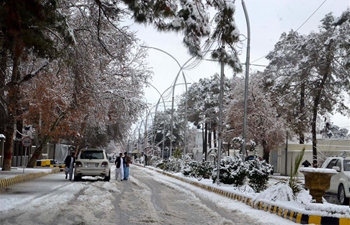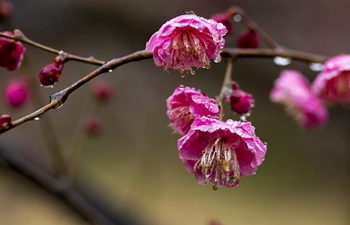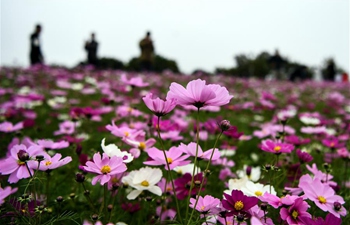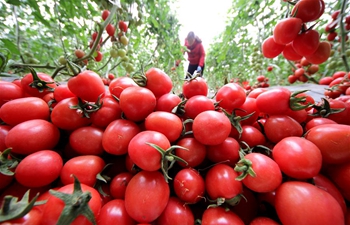by Kaula Nhongo
WINDHOEK, March 5 (Xinhua) -- Rural communities living in the north of Namibia have lost all hope as they continue to grapple with Human Wildlife Conflict (HWC) with frequent drought making the situation even worse.
Namibia has endured recurrent drought conditions since 2013 affecting the drier regions such as the south, west and the north.
This epic drought has resulted in thirsty elephants raiding villages to eat crops and take water from storage tanks.
The elephants destroy houses, water points, gardens and fences and this has caused an uproar with most communities who are now threatening to take matters into their own hands.
One community which consists of mostly livestock farmers in Omatjete in the coastal Erongo region have been affected so much that they have called on government to come up with an immediate plan to curb HWC as they continue to lose crops and human lives due to the elephant invasions.
Some farmers have had to walk long distances to nearby villages to look for grazing for their cattle as there is not enough food and water for the farmers hence they have to move and squat with their cattle to find something to eat for them.
This has made the farmers more desperate and less tolerant to the elephants as they have not only had to share the already scarce grass but some have previously lost their entire harvests that they are opting and lobbying for the elephants to be put down.
One of the farmers, who is still haunted by a vicious encounter with an elephant is 37 year old Tjitemiso (nickname) who was attacked in 2017 while accompanying his friend home in the night.
Tjitemiso and his friend crossed paths with the elephant which chased them into the bush.
They tried to hide behind a tree but the elephant discovered them. He managed to escape but his friend was trampled to death.
Although he lived to tell the tale, his life will never be the same again.
"I watched my long-time friend get trampled to death by an elephant, a picture that will remain with me for the rest of my life... the government needs to act," he said.
As one drives through the barren, dusty road leading to some of the remote villages in Omatjete, the cracked dry soil is a sign that there has not been any rain in this part of the country for a while.
According to the chairperson of the Zeraeua Traditional Authority Fabianus Uaseupuani, some of the community members have resorted to sleeping in the mountains where they feel safe.
He said farmers can no longer move freely as they head their cattle.
"The elephant population is growing that the lives of the community members are in even more danger than before. Our area is drought stricken and small that it can no longer accommodate both us and the elephants. Government needs to initiate public education for our people to develop skills or better understanding of the behaviour of elephants," Uaseupuani said.
Currently Namibia's elephant population stands at over 24,000.
Namibia's Ministry of Environment and Tourism has upgraded and rehabilitated water infrastructure for rural communities and constructed elephant dams in the north of the country in a bid to mitigate the impacts of Human Wildlife Conflict.
Speaking at the World Wildlife Day celebrations on Sunday, Minister of Environment and Tourism Pohamba Shifeta reiterated that HWC management remains high on the country's agenda and programs.
"Our focus has been on the upgrade and rehabilitation of water infrastructure for communities and the provision of alternative water to elephants. We will continue to put mitigation and preventive measures for HWC in place in all affected areas of our country," Shifeta said.




